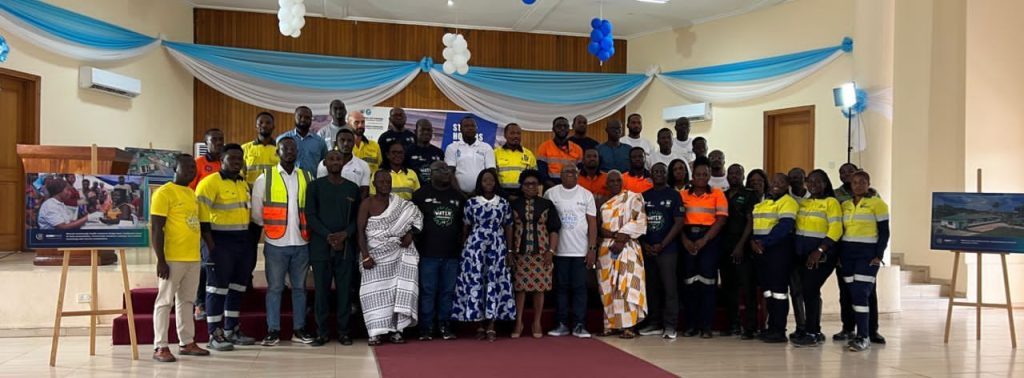|
Getting your Trinity Audio player ready...
|
Mr Abdel-Razak Yakubu, the Executive Secretary of Gold Fields Ghana Foundation (GFGF), has appealed to its host communities to join forces in preserving the water quality in their operational area.
He was convinced that by “taking this collective action, they would pave the way for a brighter future, not just for themselves, but for generations yet unborn”. Mr Yakubu made the appeal in Tarkwa during the celebration of this year’s World Water Day which was organized by the University of Mines and Technology (UMaT), Tarkwa in collaboration with the Water Resources Commission.
The World Water Day is observed every year on March 22 and the theme for 2025 is “Glacier Preservation“. He said water from the Mines was safe for consumption, erased the common perception that mining operations contaminated water resources with harmful chemicals. He emphasized that water quality was strictly controlled within the Mine, but external factors affected it once it was discharged.
According to Mr Yakubu, “the water used in the Mine contains chemicals, undergoes a treatment process overseen by the government regulators like the Environmental Protection Agency (EPA). “The treatment involves passing the water through a machine to remove contamination and ensure it is safe before released into the environment.
“The Mine water, after treatment, is crystal clear and comparable to the bottled water we drink, with hardly any noticeable difference. It is disheartening to see the clean treated water being pumped into water bodies that are heavily polluted” he lamented . Mr Yakubu added that the company would continue to engage authorities in the two assemblies, traditional leaders and other stakeholders to educate and empower their host communities on the importance of water protection.
Professor Anthony Ewusi, Dean Faculty of Geosciences at the UMaT, recalled that Prof. Jerry Samuel Yaw Kuma, Prof. William Kwame Buah and Mr Obosu carried out a research project on the abandoned Gold Fields underground Mine. He said the research found significant water accumulation in the abandoned underground mine and sometimes overflowed onto the nearby roads when it rained.
According to the findings, treating the mine water was a financially viable option, and that once the treatment was done it could provide 30 per cent of the water needed in Tarkwa. He stated that the treated Mine water would not completely solve Tarkwa’s water challenges, but it would provide some relief, easing the pressure on the local supply.
Prof. Ewusi called on the company to partner in harnessing the treated Mine water to erase at least 30 per cent of the water deficit. Dr Asare Asante-Annor, Senior lecturer, Geological Department, UMaT, emphasized the need to conserve water, noting that treated water was expensive and had to be used wisely. He encouraged people to be mindful of their water usage, whether showering, washing cars, or engaging in other activities that involved the use of water.
Additionally, Mr Asante-Annor appealed to communities living near river bodies to comply with the environmental laws, particularly those related to mining activities and refrain from directly releasing their effluents into the rivers.
Source: GNA


